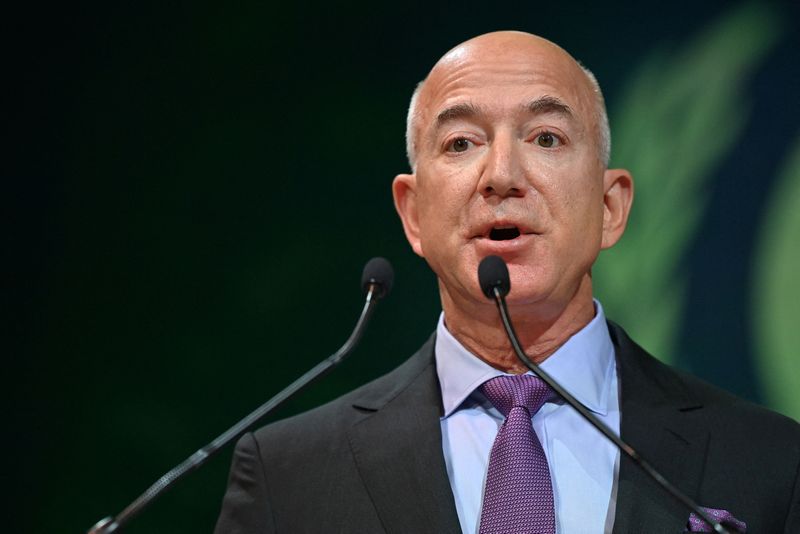Exclusive-Bezos-backed renewables alliance targets $7.5 billion for developing countries
By Simon Jessop
LONDON (Reuters) -An alliance that installs renewable energy in developing countries wants to invest around $7.5 billion during its next five-year plan, executives told Reuters, and is seeking more philanthropic partners as richer nations cut government aid.
The Global Energy Alliance for People and Planet, launched at global climate talks in 2021, has helped 30-plus countries to enhance electricity grids, set up battery storage and create jobs in the green economy.
It secures free or cheap money from charitable or governmental sources to reduce the investment risk and draw in money from multilateral development banks and private sector lenders. The task has become harder since the U.S. administration under Donald Trump has led a shift away from development aid and climate finance.
Founded by the IKEA Foundation, The Rockefeller Foundation and the Bezos Earth Fund, GEAPP’s partner roster has grown to include countries such as Britain and Denmark, the World Bank and private sector companies including GE Vernova.
WORLD LEADERS GATHER FOR NEW YORK ‘CLIMATE WEEK’
As world leaders gather in New York for the U.N. General Assembly this week alongside the city’s “climate week”, Chief Executive Woochong Um said the group was seeking new partnerships.
The alliance is also looking ahead to the next global climate conference in Brazil in November, when finding the finance to help developing countries shift to green energy is set to play a prominent role as it has at previous climate talks.
“With aid budgets under pressure, we need new models to deliver development at scale,” Um said, adding plans included “an Energy and Opportunity Coalition” to embed green energy in sectors such as agriculture and health.
SIX-FOLD INCREASE IN CLEAN ENERGY NEEDED
Underlining the scale of the challenge, the International Energy Agency has said clean energy investment in developing countries outside China needs to rise six-fold to $1.6 trillion by the early 2030s in order to hit the world’s climate goal.
Official development aid fell 7.1% in real terms in 2024, data from the OECD showed, the first decline for six years, led by a slide in U.S. funding, raising pressure on groups such as GEAPP to increase its range of backers.
DIGITALLY-INTELLIGENT AND RENEWABLES-READY
Um said the renewables alliance would seek to scale up its work on what it describes as “Grids of the Future”, or ensuring power systems in emerging economies are renewables-ready, digitally intelligent, and financially sustainable.


